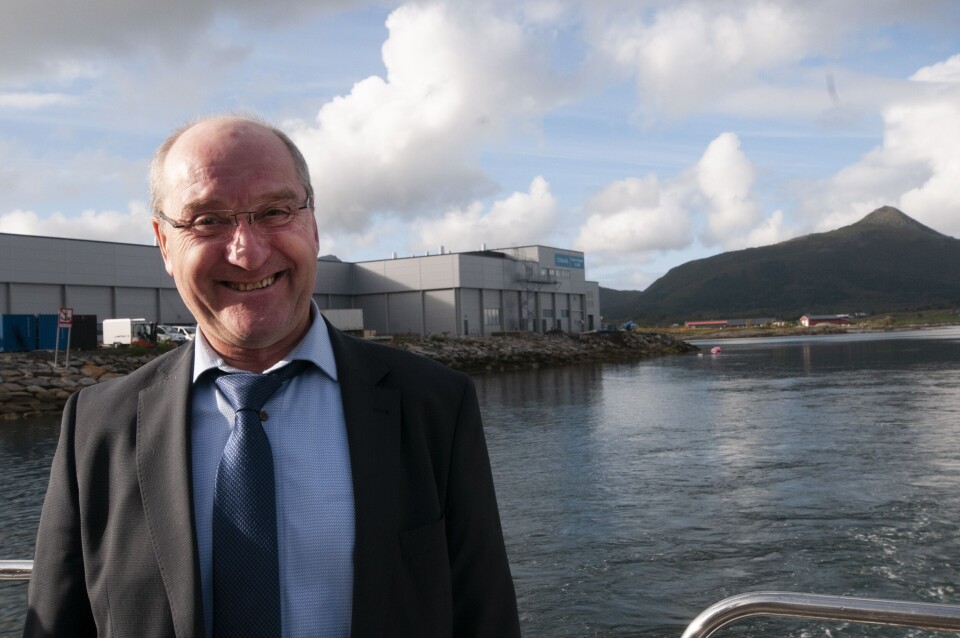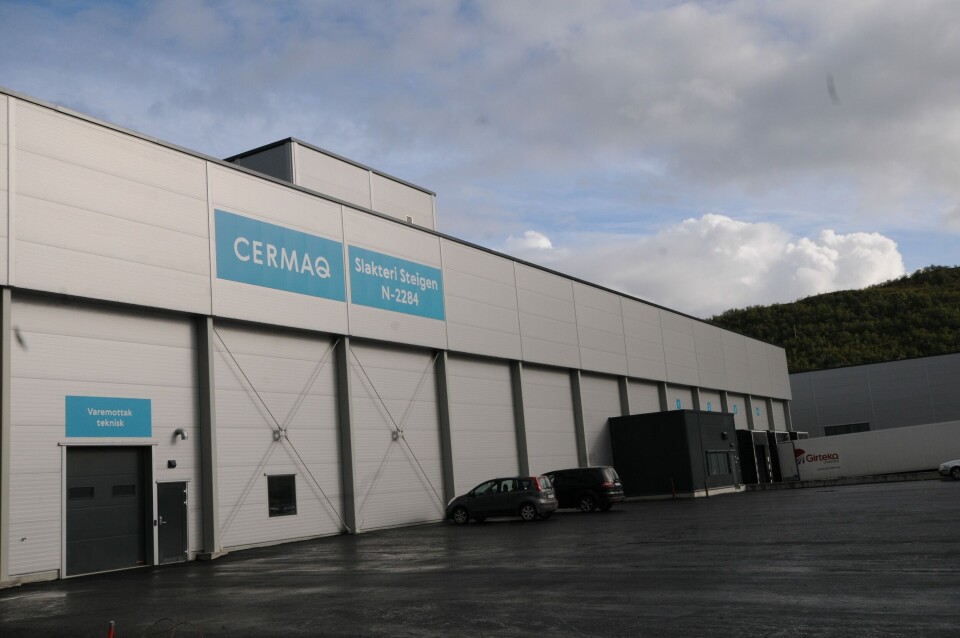
Salmon put cash-strapped council back in the black
Salmon farming is well known for bringing economic benefits to rural areas, but few can have seen such a dramatic change in fortunes as Steigen municipality in Nordland, Norway, home of Cermaq’s newly-opened processing plant.
With money from new permits and other biomass growth, the district expects to be taken off the ROBEK list, a kind of “special measures” status which restricts the financial activities of councils with money troubles.
“Yeah! Finally,” said relieved mayor Asle Schrøder when he spoke at the opening of the plant at Storskjæret.
18-year wait
It’s been a long road to the realisation of plans for the processing plant, but the delays mean the municipality now has a state-of-the-art facility, ready to handle up to 270 tonnes of salmon per shift.
The plans for a new processing plant were first launched back in 2000, but were put on ice, pulled out and put on ice again until it was decided in 2015 that something should finally be done.
The land where the plant stands was set aside for the purpose by the municipality of Steigen when the first plans were originally launched.
“It is 18 years since the city council made the decision. Not so strange the place here long was called ‘Feilskjæret’ (slip-up or wrong move), but now it is forgotten. Now the place really deserves its proper name, Storskjæret (Great Skerry)” Schrøder said.
£5 million windfall
What the municipality saw when it became clear that the construction would be realised is unique. Steigen, which has suffered economically and ended up on the ROBEK list, suddenly had money in its pocket as a result of Norwegian salmon farming’s “green” permits system. Cermaq had secured five group B licences for Steigen, which put NOK55 million (£5.05m) into the municipality’s bank account.

On top of the NOK55m from the green permits, the municipality has also secured NOK31m through its share of auctions for extra salmon biomass permits. Calculations by Fish Farming Expert’s sister site, Kyst.no, have shown that Cermaq has received 388 tonnes of extra MTB in this way in Steigen through various rounds in the last couple of years.
“Cermaq has become a cornerstone company in the municipality. They have given us money right into the municipal cash register. From having an underlying debt of NOK30m, we will now during the winter, thanks to the aquaculture industry, get rid of the ROBEK list,” he said enthusiastically.
Regular payments
He points out, however, that money from biomass expansions are one-off payments, and is looking forward to a system where municipalities get regular payments for hosting salmon farming activities.
However, the municipality has secured some annual revenues in the future through the lease Storskjæret AS has with Cermaq.
“The agreement is designed so that Cermaq can, at any time, buy us out. However, they must buy us out within 15 years. Thus, we get the money we spent back,” explains the mayor.
He also rejoices over the 55 jobs that are already established, the extra jobs that will arrive when fillet lines are in place over the new year, and all the spillover effects the jobs create in society.
“This has become a driving force for the municipality. It has become a pride in a municipality that has struggled, now we look forward,” he says, quoting Winston Churchill’s well-known word that “this is not the end. It’s not even the beginning of the end. But it may be the end of the beginning”.























































